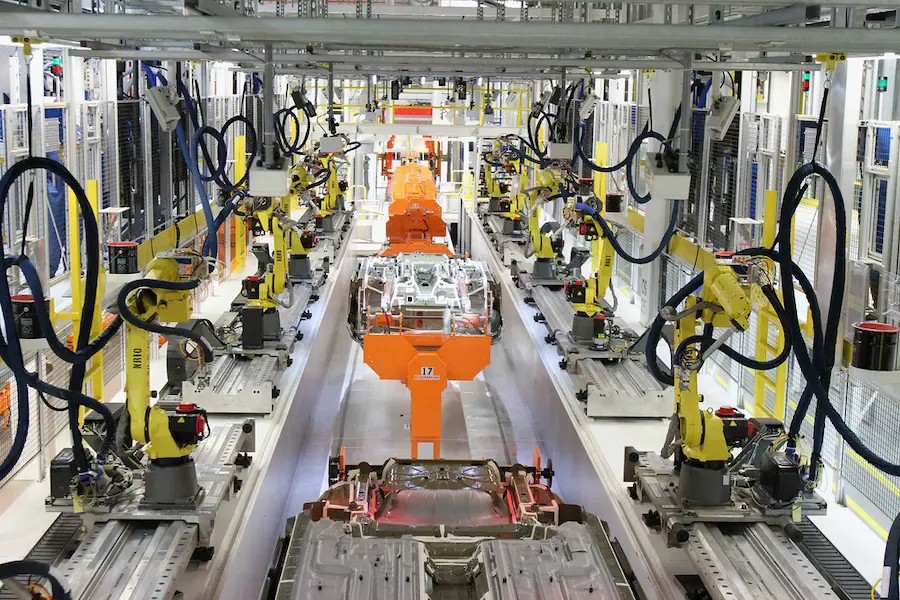Technology tends to evolve quickly, leaving some traditional methods behind. Yet, manual powder coating machines continue to hold their ground despite the rise of automated systems. Are these machines still relevant in today’s market, or are they just a piece of nostalgia for certain industries? It’s worth examining their ongoing role and the unique advantages they offer.
Table of Contents
Manual Machines Offer Customization for Small Batch Production
For small batch production, manual powder coating machines shine as a practical solution. Unlike their automated counterparts, these machines allow operators to customize each coating job to meet specific needs. Whether it’s a custom color, a delicate application, or a specialized finish, manual machines give operators the freedom to control the process in ways automated systems often cannot.
In smaller production settings, where flexibility is key, manual powder coating machines offer distinct advantages. Customization becomes much easier when there’s no need for extensive programming or setup time. This ability to adapt quickly makes manual machines an attractive option for manufacturers who don’t require large-scale operations but still need precise, tailored results. The personal touch provided by manual machines ensures that each job is handled with the care and attention it deserves.
Cost-Effective Solutions for Niche or Low-Volume Coating Jobs
For companies handling niche or low-volume jobs, manual powder coating machines are a cost-effective alternative to high-end automated systems. Automated machines require significant upfront investment, regular maintenance, and often involve long setup times for each different project. Manual machines, on the other hand, offer a much lower initial cost while still providing a high level of efficiency for jobs that don’t demand mass production.
When dealing with smaller orders or specialized projects, the flexibility and affordability of manual machines make them an excellent choice. These machines are not only more accessible for businesses with limited budgets, but they also allow manufacturers to experiment with different types of coatings without the overhead of automated systems. This makes them a practical solution for anyone needing to tackle low-volume tasks without cutting corners on quality.
Flexibility in Handling Specialized Materials Without Complex Systems
Certain materials demand extra care and attention during the powder coating process. Manual machines offer an advantage here, as they allow operators to adjust and fine-tune the application of powder to suit specific material types. Whether it’s a fragile metal, a delicate part with intricate shapes, or an irregular surface, the operator has direct control over the entire process.
Compared to complex automated systems, manual machines can handle specialized materials with ease. There’s no need to adjust complex settings or deal with intricate machine programming—just the right application from an experienced operator. This makes manual machines an ideal choice for industries that work with a variety of unique materials and need a system that can quickly adapt to different demands.
Control Over Application Techniques Still Holds Value in Certain Sectors
While automated systems may be better at high-volume production, they often lack the nuanced control that comes with manual machines. In industries where specific application techniques are crucial, manual powder coating machines still reign supreme. Operators can fine-tune the coating process, applying powder with a level of precision and care that automated systems simply can’t match.
For projects requiring particular techniques, like texturing, stippling, or layering different finishes, manual machines provide unmatched control. This is especially valuable in sectors like automotive restoration or custom manufacturing, where the final finish is everything. With manual machines, workers can adapt their approach to meet the exacting standards of each job, ensuring the best possible results.
Simple Design and Maintenance Appeal to Specific Manufacturing Needs
Manual powder coating machines are renowned for their simplicity and reliability. Unlike automated systems, which may require specialized training and ongoing software updates, manual machines offer a straightforward design that’s easy to maintain and repair. In many industries, this makes manual machines the preferred choice for companies that need something reliable and simple.
The lack of complex systems means there’s less that can go wrong. Maintenance becomes less of a headache because operators are already familiar with the machine’s components and function. This makes manual powder coating machines especially attractive for businesses that prioritize efficiency without the need for intricate technical knowledge. Simplicity often equals dependability in this regard, which is essential for day-to-day operations.
Manual Machines Offer Direct Operator Engagement for Quality Assurance
One of the key benefits of manual powder coating machines is the direct involvement of the operator in the application process. Unlike automated machines that work according to preset commands, manual machines allow the operator to closely monitor the job, making adjustments as needed throughout the process. This level of engagement ensures a higher standard of quality assurance.
In industries where precision and consistency are paramount, having an operator at the helm of the process adds an extra layer of quality control. With manual machines, operators can inspect the coating at each step, catching any issues before they become problems. This hands-on approach leads to better overall outcomes, as workers can immediately fix any imperfections or inconsistencies in the coating.
Compatibility with Specialty Coatings and Detailed Finishes
Manual powder coating machines are particularly adept at handling specialty coatings and intricate finishes. Whether the job requires a custom mix of colors, unique textures, or special powder formulations, manual machines provide the flexibility to apply these coatings with precision. Automated systems may struggle to accommodate such complex tasks without extensive adjustments or additional programming.
For businesses that specialize in detailed or custom coatings, the ability to fine-tune the application with a manual powder coating machine is invaluable. The simplicity and control that these machines offer allow them to consistently produce high-quality, customized finishes that automated machines may struggle to replicate. This makes manual machines a preferred choice for industries focused on unique or high-end finishes.

